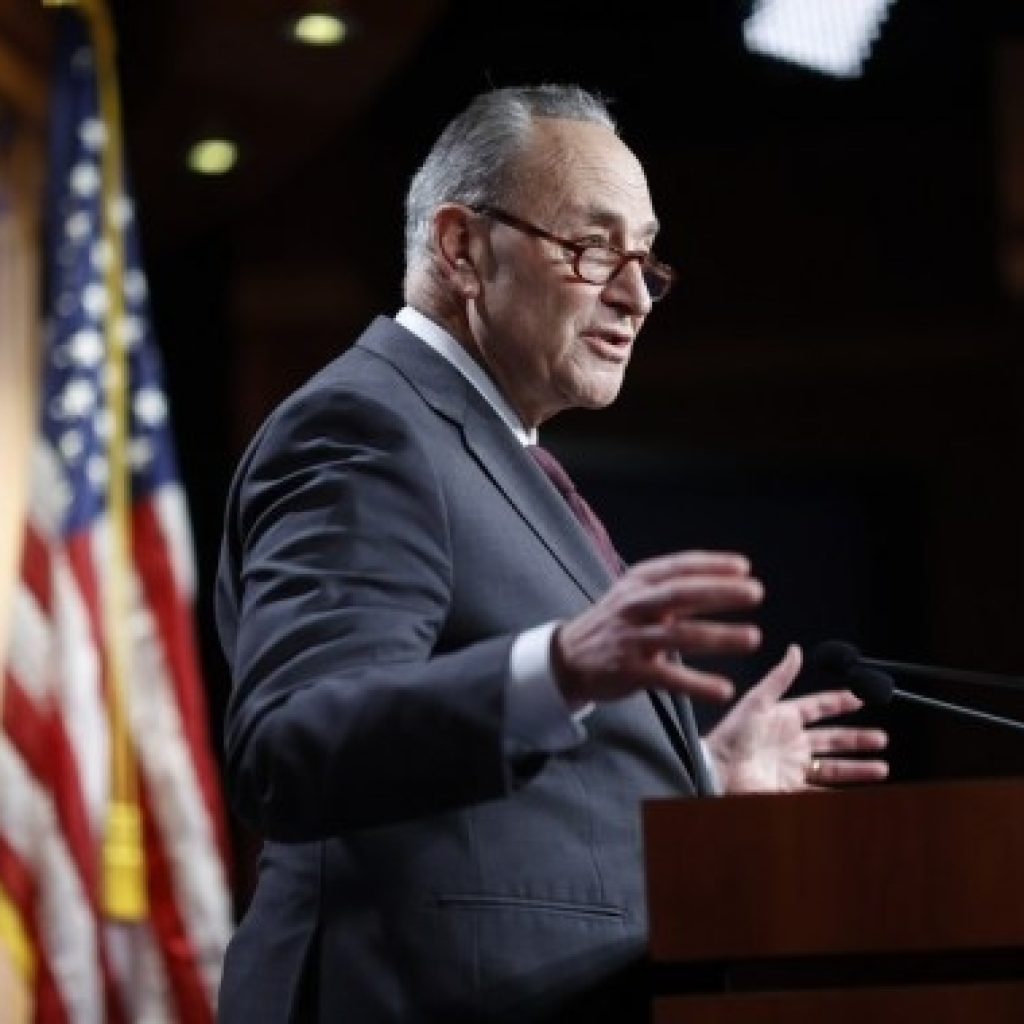President to discuss “urgency” of passing the aid package as well as legislation to keep the federal government operating through the end of September
President Joe Biden will convene the top four congressional leaders at the White House on Tuesday to press lawmakers on passing an emergency aid package for Ukraine and Israel, as well as averting a looming government shutdown next month, according to a White House official.
The top four leaders include House Speaker Mike Johnson, R-La., Senate Majority Leader Chuck Schumer, D-N.Y., House Minority Leader Hakeem Jeffries, D-N.Y., and Senate Minority Leader Mitch McConnell, R-Ky.
During the meeting, the president will discuss the “urgency” of passing the aid package, which has bipartisan support, as well as legislation to keep the federal government operating through the end of September, said the White House official, who was granted anonymity to discuss a meeting not yet publicly confirmed.
The Republican-led House is under pressure to pass the $95 billion national security package that bolsters aid for Ukraine, Israel as well as the Indo-Pacific. That legislation cleared the Senate on a 70-29 vote earlier this month, but Johnson has been resistant to putting up the aid bill for a vote in the House.
“This is one of those instances where one person can bend the course of history. Speaker Johnson, if he put this bill on the floor, would produce a strong, bipartisan majority vote in favor of the aid to Ukraine,” Jake Sullivan, the White House national security adviser, said Sunday on ABC’s “This Week.”
Sullivan stressed that Ukrainians need weapons and ammunition to fend off Russian forces, and that in his personal conversations with the speaker, he “has indicated that he would like to get the funding for Ukraine.”
Separate from the national security package, the first tranche of government funding is due to expire Friday. The rest of the federal government, including agencies such as the Pentagon, Department of Homeland Security and the State Department, expires on March 8.
In a letter to his colleagues sent Sunday, Schumer said there was not yet an agreement to avoid a partial shutdown of the agencies whose funding expires this week. That includes the departments of Transportation, Housing and Urban Development, Agriculture and Veterans Affairs.
“While we had hoped to have legislation ready this weekend that would give ample time for members to review the text, it is clear now that House Republicans need more time to sort themselves out,” Schumer wrote in the letter. The Senate majority leader called on Johnson to “step up to once again buck the extremists in his caucus and do the right thing” by greenlighting funding to keep the government open.
Johnson said Schumer’s letter was “counterproductive” and said Democrats were pushing their own unrealistic policy demands.

“This is not a time for petty politics,” Johnson said in a statement. “House Republicans will continue to work in good faith and hope to reach an outcome as soon as possible, even as we continue to insist that our own border security must be addressed immediately.”
Last week, Biden signed a short-term spending bill that keeps the federal government operating until early March.
The bill averts what would’ve been a partial government shutdown starting Saturday. It does not address additional aid for Ukraine, which remains in limbo as key legislators continue to negotiate a border security measure that would go in tandem with more support for Kyiv.
Congress, ahead of the winter snowstorm that struck Washington, D.C., on Friday, passed the short-term bill with large bipartisan majorities on Thursday. The vote was 77-18 in the Senate and 314-108 in the House.
Under the bill, funding for agencies overseeing agriculture, veterans affairs, energy, transportation and housing runs through March 1. Funding for the rest of the federal government now runs through March 8. It’s meant to buy lawmakers extra time to draft full-year spending bills through the end of the fiscal year on Sept. 30.
Speaker Mike Johnson, R-La., will continue to face pressure from House conservatives who want him to abandon a bipartisan agreement that sets overall spending levels for those full-year bills at $1.66 trillion. Those conservatives say that is too much money, but Democrats and moderate Republicans say Congress must abide by that deal and avoid legislative dysfunction during an election year.
ALSO READ: US, EU Sanctions Extend to China Firms Supporting Ukraine War














